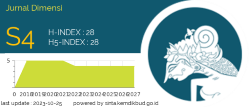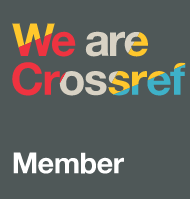THE CORRELATION BETWEEN ACADEMIC SELF-CONCEPT AND STUDENTS’ READING COMPREHENSION IN ENGLISH EDUCATION STUDY PROGRAM OF UNIVERSITAS RIAU KEPULAUAN
Abstract
Keywords
Full Text:
PDFReferences
Anggara, Selvilya. 2021. “The Implementation of Gist Strategy to Teach Reading Comprehension in Senior High School.” Edukatif: Jurnal Ilmu Pendidikan 3(4):1101–11.
Bojovic, M. 2010. “Reading Skills and Reading Comprehension in English for Specific Purposes.” Pp. 1–5 in The International Language Conference on The Importance of Learning Professional Foreign Languages for Communication between Cultures.
Bong, Mimi, and Einar M. Skaalvik. 2003. “Academic Self-Concept and Self-Efficacy: How Different Are They Really?” Education Psychology Review 15(1). doi: 10.1023/A.
Brown, H. Douglas. 2004. Language Assessment: Principles and Classroom Practices. edited by V. L. Blanford. New York: Pearson Education, Inc.
Burns, Robert. 1982. Self-Concept Development and Education. Dorchester: Holt, Rinehart and Winston Ltd.
De-la-Peña, Cristina, and María Jesús Luque-Rojas. 2021. “Levels of Reading Comprehension in Higher Education: Systematic Review and Meta-Analysis.” Frontiers in Psychology 12(August):1–11. doi: 10.3389/fpsyg.2021.712901.
Liu, Woon Chia, and Chee Keng John Wang. 2005. “Academic Self-Concept: A Cross-Sectional Study of Grade and Gender Differences in a Singapore Secondary School.” Asia Pacific Education Review 6(1):20–27. doi: 10.1007/BF03024964.
Locher, Franziska Maria, Sarah Becker, Irene Schiefer, and Maximilian Pfost. 2021. “Mechanisms Mediating the Relation between Reading Self-Concept and Reading Comprehension.” 1–20.
Ma, Lei, and Zheng Zhao. 2025. “Reading Motivation and Reading Comprehension Achievement among English Majors in China: A Descriptive Correlational Study.” Heliyon 11(3):1–10. doi: 10.1016/j.heliyon.2025.e42427.
Manurung, Sulastri, Anita Ariyanti, Dewi Yana, Juwita Boneka Sinaga, and Adam Adam. 2024. “The Correlation between Reading Strategies and Reading Comprehension.” Cahaya Pendidikan 9(2):221–31. doi: 10.33373/chypend.v9i2.5975.
Marsh, Herbert W. 1993. “Academic Self-Concept: Theory, Measurement, and Research.” Pp. 59–98 in Psychological Perspectives on the Self. Vol. 4, edited by J. Suls.
Matovu, Musa. 2012. “Academic Self-Concept and Academic Achievement among University Students.” International Online Journal of Educational Sciences 4(1):107–16.
Monica, Monica, and Eduard Soplantila. 2024. “The Role of Local Folklores in Students’ Reading Comprehension.” MATAI: International Journal of Language Education 4(2):185–98. doi: 10.30598/matail.v4i2.13717.
Nurhayati, Devi, Reno Julyan, and Aldha Williyan. 2023. “Investigating EFL Learners’ Reading Difficulties and the Possible Solutions.” NextGen Education Review Journal 1(1):25–37. doi: https://doi.org/10.58660/nextgen.v1i1.32.
Paris, Scott G. 2005. “Reinterpreting The Development of Reading Skills.” Reading Research Quarterly 40(2):184–202. doi: 10.1598/RRQ.40.2.3.
Ramadhianti, Agustina, and Sugianti Somba. 2023. “Reading Comprehension Difficulties in Indonesian EFL Students.” Journal of English Language Teaching and Literature (JELTL) 6(1):1–11. doi: https://doi.org/10.47080/jeltl.v6i1.2477.
Sağlam, Manolya. 2024. “The Relationship between the Academic Self-Concept of Turkish ELT Students and Their Reading Skills.” Innovational Reseach in ELT 5(2):66–74.
Shavelson, Richard J., Judith J. Hubner, and George C. Stanton. 1976. “Self-Concept: Validation of Construct Interpretations.” Pp. 407–41 in Review of Educational Research. Vol. 46.
Urrutia, Mabel, Sandra Mariángel, Esteban J. Pino, Pamela Guevara, Karina Torres-Ocampo, Maria Troncoso-Seguel, Claudio Bustos, and Hipólito Marrero. 2024. “Impact of Affective and Cognitive Variables on University Student Reading Comprehension.” Education Sciences 14(6):1. doi: 10.3390/educsci14060554.
Woolfolk, Anita. 2016. Educational Psycho logy. Pearson Education Ltd.
Zagoto, Impiani. 2020. “Academic Self-Concept on Reading Comprehension.” Jurnal Education and Development 8(2):545–48.
DOI: https://doi.org/10.33373/dms.v12i3.8180
Refbacks
- There are currently no refbacks.

This work is licensed under a Creative Commons Attribution 4.0 International License.











